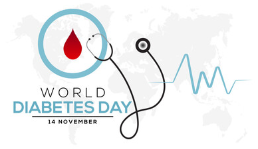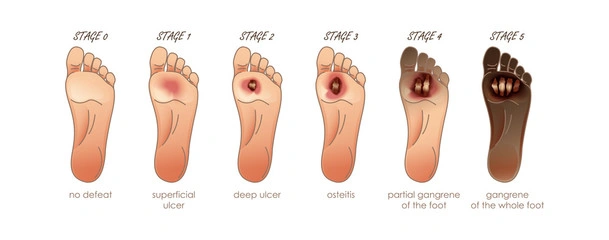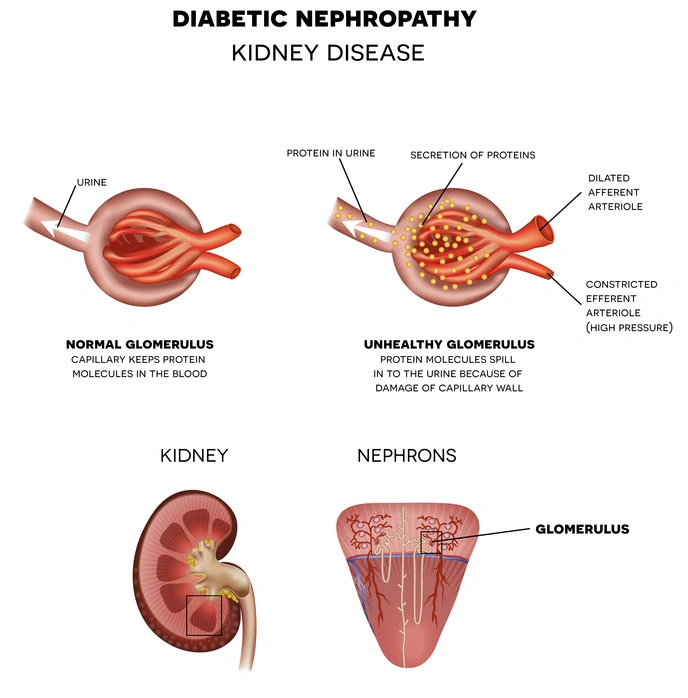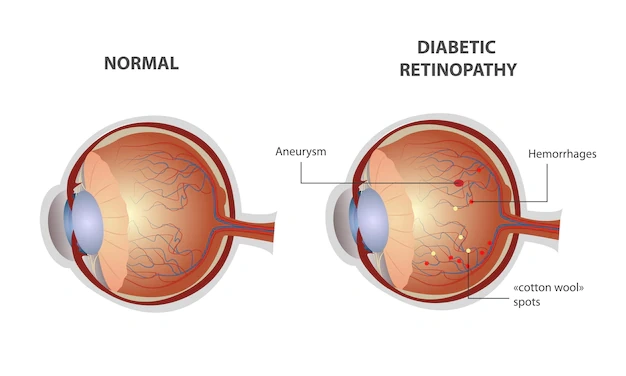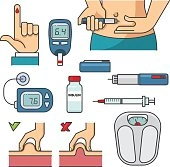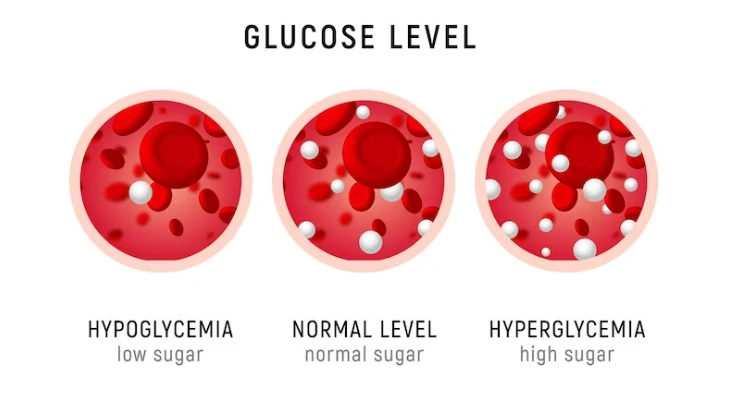Managing Seniors with Diabetes: Monitoring Beyond Blood Sugar
25-06-24
Dr. Haroon Hussain, a renowned diabetologist at Manipal Hospitals, in a conversation with Healthy Wrinkles, explains Managing Seniors with Diabetes: Monitoring Beyond Blood Sugar. Diabetes is a condition that affects people of all ages, and seniors are no exception.
When it comes to diabetes in the elderly, the complications are not very different from what we see in younger individuals. However, there's a unique challenge in managing diabetes in seniors, as many of these complications can be overlooked or mistaken for normal signs of aging. In this article, we will explore the common complications that seniors with diabetes may face and the importance of early detection and regular monitoring to manage their health effectively. Watch our YouTube playlist on diabetes(madhumeha) to know more.
Understanding the Common Complications
Seniors with diabetes are at risk of several complications, just like their younger counterparts. These complications include:
Diabetic Retinopathy: This condition affects the eyes and can lead to vision problems and even blindness. It is a significant concern for seniors with diabetes, but it's often overlooked as age-related vision issues.
Cardiovascular Disease: Seniors with diabetes are at a higher risk of heart disease, including heart attacks and strokes. The symptoms of cardiovascular disease can be subtle and may be attributed to aging rather than diabetes.
Microvascular Disease: Diabetes can affect small blood vessels, leading to microvascular complications. These can manifest as kidney problems or nerve damage, among other issues.
Diabetic Peripheral Neuropathy: Nerve damage due to diabetes, particularly in the extremities, can cause pain, numbness, and tingling. Seniors may not always associate these symptoms with diabetes, assuming they are simply age-related discomforts
Diabetic Foot Issues: Seniors with diabetes are more susceptible to foot problems, including slow-healing wounds and infections. These issues can be mistaken for general foot troubles associated with aging. Learn more about diabetes in seniors from our experts.
Challenges in Detection
One of the primary challenges in managing diabetes in seniors is the mistaken belief that these complications are merely signs of aging. For instance, if a senior with diabetes complains of visual symptoms, such as difficulty reading, it is often attributed to age-related vision changes rather than diabetes. The same goes for incontinence issues, which can be misunderstood as a natural consequence of aging when, in fact, they may be related to diabetes. Watch our curated playlist on care for seniors.
The Importance of Early Detection
Early detection of diabetes-related complications is crucial for seniors. These complications can worsen over time and significantly impact their quality of life. Regular screenings can help catch these issues early, making them more manageable and less detrimental to overall health.
Caregivers and seniors themselves need to understand that the symptoms they experience could be related to diabetes. Routine screenings and health check-ups can differentiate between typical signs of aging and diabetes-related complications. By detecting these problems early, healthcare providers can take proactive measures to manage them effectively. Read more about the >role of geriatricians in managing chronic health condition.
Continuous Monitoring and Dynamic Care
- Managing diabetes in seniors is not a one-time process. It requires ongoing care and monitoring. Diabetes is a dynamic condition, and its effects can change over time. Seniors and their caregivers should adopt a proactive approach to their health by:
- Regularly scheduling screenings for diabetes-related complications
- Monitoring blood sugar levels and adhering to treatment plans.
- Making necessary lifestyle adjustments, such as diet and exercise, to control diabetes.
- Seeking medical advice and assistance when symptoms or complications arise. View Doctor At Home for emergency care and other services.
Conclusion
Seniors with diabetes face unique challenges in managing their health due to the potential overlap between diabetes-related complications and the natural signs of aging. Understanding the common complications, the challenges in detection, and the importance of early detection are crucial in providing optimal care for senior individuals with diabetes.
By maintaining a proactive and dynamic approach to healthcare, seniors and their caregivers can significantly improve their quality of life while effectively managing diabetes and its associated complications. Regular screenings, open communication with healthcare providers, and a commitment to a healthy lifestyle are key to ensuring that seniors with diabetes can enjoy their golden years with the best possible health.
Whether you are searching for informative articles, or looking for healthcare providers, Healthy Wrinkles is an excellent resource for all your senior care needs. We also have a great compilation of all the medical expert talks for healthy aging on Healthy Wrinkle YouTube channel.
"Join the cause and make a difference in a senior's life - share your knowledge about local senior care resources today!"
Disclaimer: Healthy Wrinkles does not recommend or offer any medical diagnosis, treatment, or advice. The information provided here is only for the awareness of disease or ailment among individuals, caregivers, and the public. The advice of doctors, licensed professionals, or therapists who are knowledgeable about your particular situation should always be sought before using the information provided here. It should also not be used in the event of a medical emergency or for the diagnosis or treatment of any medical condition. If you want urgent assistance, contact a qualified medical professional. Additionally, the information represents the author's views and not those of Healthy Wrinkles.
